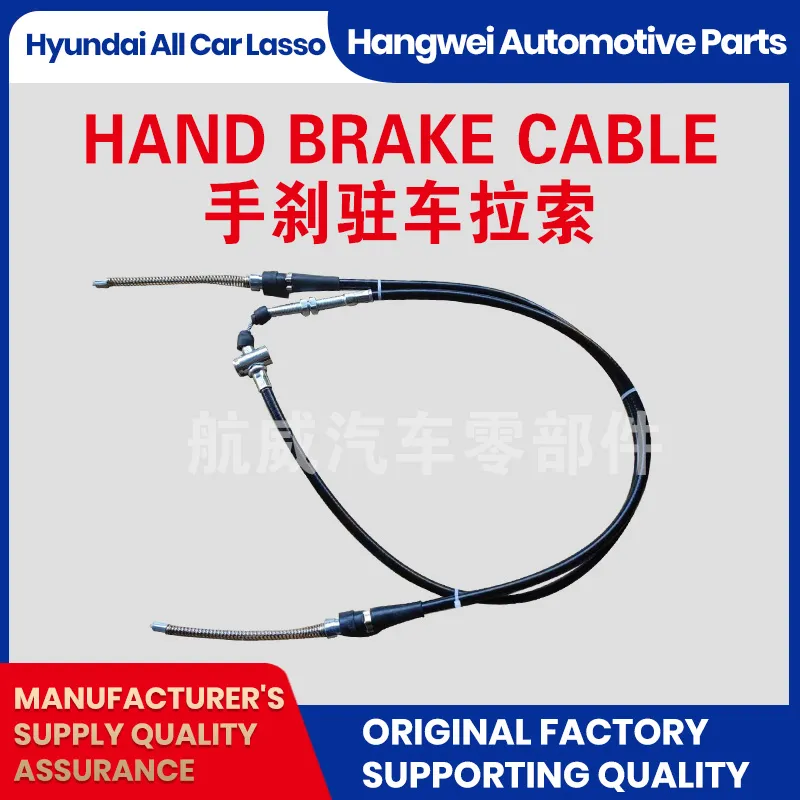carburetor cable
Understanding the Carburetor Cable A Key Component in Your Vehicle's Performance
The carburetor cable is an essential component in many vehicles, particularly those equipped with carbureted engines. It plays a crucial role in controlling the airflow and fuel mixture that powers the engine, making it integral to overall vehicle performance. In this article, we will delve into the function of the carburetor cable, its significance, and how to maintain it for optimal performance.
What is a Carburetor Cable?
At its core, the carburetor cable is a wire that connects the accelerator pedal to the carburetor. When the driver presses the accelerator pedal, this cable conveys that motion to the carburetor, which then opens its throttle plate based on the input from the accelerator. This mechanism allows more air and fuel to enter the engine, thereby increasing power and acceleration.
Most carburetor cables are designed to withstand harsh conditions, as they are often exposed to heat, moisture, and vibrations. A typical cable consists of an inner wire that moves within an outer sheath. Proper functioning of this cable is paramount; any malfunction can lead to sluggish acceleration or a complete loss of power.
Why is the Carburetor Cable Important?
The carburetor plays a significant role in mixing fuel and air, ensuring that the engine runs smoothly. The cable's importance lies in its ability to provide timely and accurate responses to the driver's input. A malfunctioning carburetor cable can lead to various performance issues, including poor fuel efficiency, erratic engine behavior, and even stalling.
Moreover, as vehicles age, wear and tear are inevitable. Cables can fray, stretch, or corrode, resulting in impaired functionality. Hence, regular inspection and maintenance are vital to ensure the vehicle performs at its best.
carburetor cable

Signs of a Failing Carburetor Cable
Drivers should be vigilant for signs that their carburetor cable may be experiencing issues. Common symptoms include
1. Delayed Acceleration If the vehicle does not respond immediately when the accelerator is pressed, this could indicate a problem with the cable. 2. Sticky Throttle A throttle that feels sticky or difficult to operate may suggest that the cable is binding or damaged. 3. Unresponsive Pedal If the accelerator pedal feels loose or unresponsive, it is crucial to inspect the cable for any issues.
Maintenance Tips
To prolong the life of the carburetor cable and ensure smooth operation, regular maintenance is essential. Here are some tips
- Inspection Regularly check the cable for signs of wear, fraying, or corrosion. If any damage is noted, the cable should be replaced promptly. - Lubrication Occasionally lubricating the cable can help reduce friction and wear. Use a suitable lubricant specifically designed for cables. - Adjustment Ensure that the cable is properly adjusted. An improperly adjusted cable can lead to performance issues and may require professional attention.
Conclusion
In summary, the carburetor cable is a vital component that influences your vehicle's performance. Understanding its function, recognizing signs of wear, and carrying out regular maintenance will help ensure that your vehicle runs smoothly and efficiently. With proper care and attention, the carburetor cable can help keep your engine performing at its best, ultimately leading to a better driving experience.
-
Upgrade Your Clutch System with Premium Hydraulic Clutch LinesNewsJul.31,2025
-
Unlock the Power of Precision with Our Throttle CablesNewsJul.31,2025
-
Unleash Power and Precision with Our Accelerator CablesNewsJul.31,2025
-
Experience Unmatched Safety with Premium Handbrake CablesNewsJul.31,2025
-
Enhance Your Vehicle's Performance with Quality Gear CablesNewsJul.31,2025
-
Workings of Clutch Pipe and Hose SystemsNewsJun.04,2025
